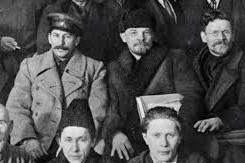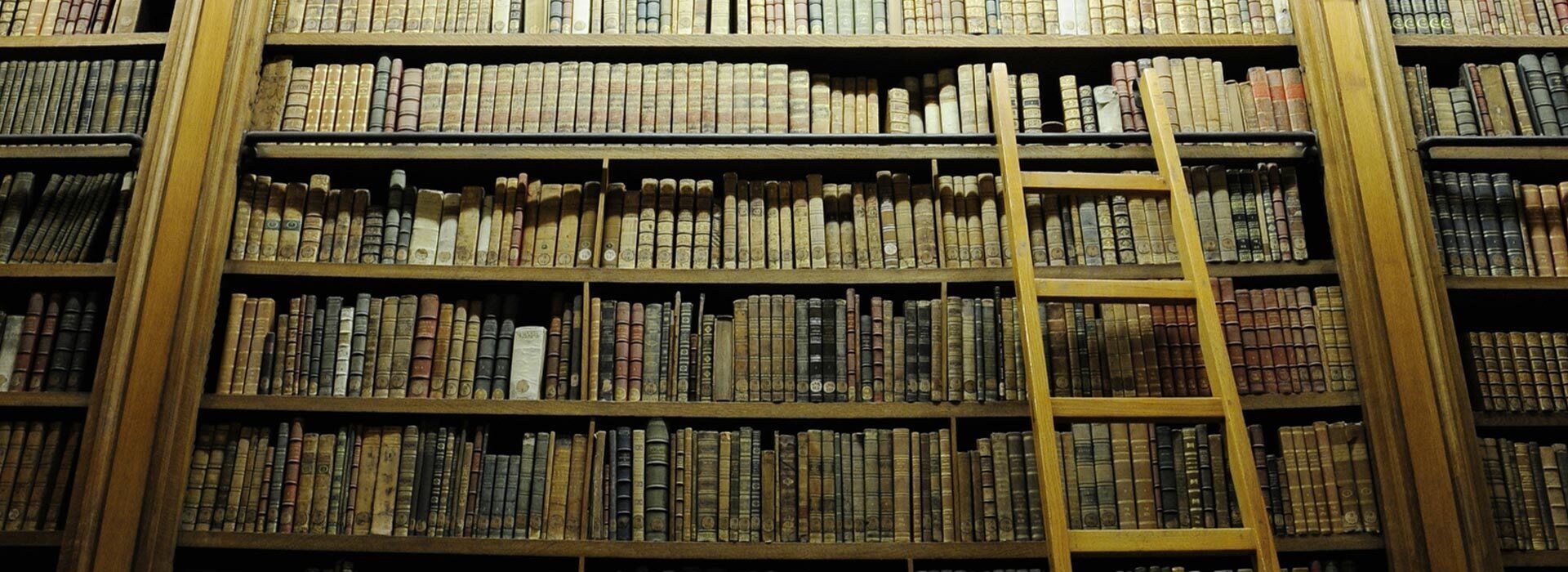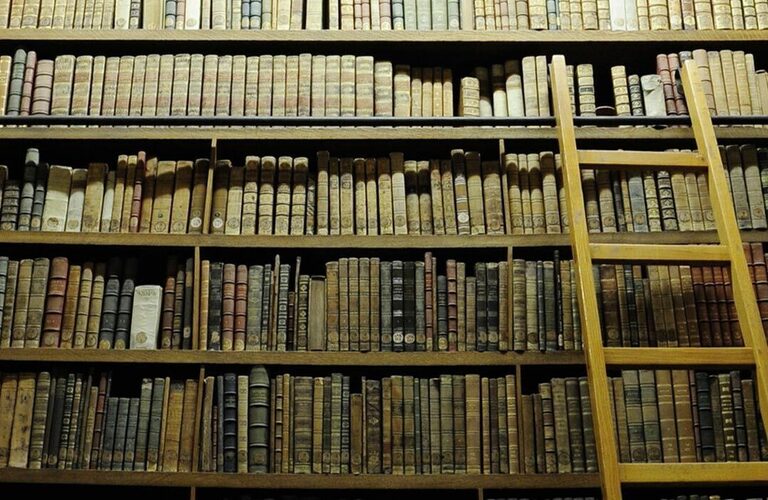
posted 2nd September 2023
Lenin, Stalin and Trotsky had never known anything other than Tsarism in their homelands. The dynasty had ruled the Russian Empire for three hundred years and were intricately woven into the ruling elites of Europe. Tsar Nicolas II was the grandson of Britain’s Queen Victoria and his wife, Alexandra, was her granddaughter. The Tsar was closely related to German Keiser Willhelm II and to British King, George V. The Tsars had ruled Russia with an iron fist and had always rejected any ideas of changing the nature of government. By the middle of the 19th century Russia was in danger of falling behind its European rivals. The Tsars were hostile to meaningful political reform, and, by the late 19th century, a new generation of intellectuals were becoming radicalised in their opposition to Tsarism in the Russian Empire.
Vladimir Ulyanov, known to history as Lenin, was born in Simbirsk in 1870. Simbirsk is east of Moscow and the home city of famous writers such as Nikolay Karamzin. Lenin’s father, Ilya, was an inspector of schools for the Simbirsk region and Lenin’s mother, Maria, was a traditional mother with an enthusiasm for culture and linguistics. Lenin had German, Swedish and Jewish ancestry and this gave him a cosmopolitan flare. Lenin was given a typical education for a child of the Russian intelligentsia. He learned languages, sciences and was exposed to high culture, especially literature and music. Lenin’s young life took a turn towards Revolution when his elder brother, Alexander, was executed for his part in an attempted assassination of Tsar Alexander III. After the deaths of his father and elder brother Lenin’s mother, Maria, fought against her other children going into politics. She failed. Lenin was expelled from university and eventually sent into exile in Siberia. After Lenin’s marriage to Nadezhda Krupskaya, Lenin left the Russian Empire spending time in London, Paris, Munich and Geneva occupying himself with anti-Tsarist political activism.
Joseph Vissarionovich Jughashvili, known to history as Stalin, was born in the Georgian town of Gori in 1878. His father, Bezo, was a shoemaker who was violent towards young Josef. Josef’s mother, Keke, worked on and off as a cleaner and seamstress and doted on her only surviving child. Josef showed potential as a student and won a place to study at the Seminary School in the Georgian capitol of Tiflis. During his time training to be a Priest, the young Stalin became aware of the radical writings of German economist, Karl Marx. By his late teens Stalin had become a devoted Marxist and became a full time political activist in Georgia. By the early 20th century Stalin had become an accomplished bank robber and money generator for the Russian Social Democratic Party, especially the Bolshevik faction headed by Lenin. Stalin organised strikes and eventually came to the attention of the Russian Police, the Okhrana. After a failed attempt to arrest him, Stalin went underground living from donations from friends and political allies. This clandestine life would come to suit a man like Stalin.
Lev Davidovich Bronstein, known to history as Leon Trotsky, was born in Bereslavka in modern day Ukraine. His father was a highly successful Jewish farmer, and the young Trotsky grew up in comfort. Trotsky received a thorough Lutheran education in languages, Law and the sciences but soon turned to revolutionary Marxism and this decision defined the rest of his life. By the late 19th century Trotsky was writing pamphlets and articles promoting the cause of Revolution. Trotsky was arrested for his activities and sent to jail where he married Aleksandra Sokolovskaya. Alexandra was as committed to the cause as Trotsky and dedicated herself to the Marxist worldview. Trotsky and Alexandra were sentenced to exile in Siberia.
One of the most defining, but not well known, events of the 20th century was the 1905 crisis in Russia. The crisis was trigged by the disastrous war between Russia and Japan which ended in a humiliating defeat for Russia. The nation felt demoralised and in St. Petersburg strikes broke out and workers became militant. A Russian Orthodox Priest, Georgi Gapon, led protests and called on Tsar Nicolas for food aid for the poor. Tsar Nicholas was faced with an unpalatable situation. The population he governed over were becoming increasingly restless, the elite he headed wanted to maintain their positions and economic power. The Tsar eventually decided to implement reform and signed up to the October Manifesto that promised fundamental political change in Russia. Slowly but surely, Nicholas reneged on these reforms further radicalising anti-Tsarists politics still further.
As the decade wore on the Russian Social Democratic Workers Party had spilt into two factions. There was the Bolshevik faction headed by Lenin, and the Menshevik faction headed by Julius Martov. One of Lenin’s young protégés was Josef Stalin. Stalin had become one of the leading figures in the Georgian faction of the Bolsheviks and was a keen student of Lenin. His administration skills were clear and his usefulness to Lenin was growing even though Stalin was a target for the authorities and was sent to Siberia. Trotsky was a more independent voice within the party and joined the editorial staff of the party newspaper, Pravda. Trotsky avoided the factional splits in the party preferring to act as an individual of importance. By the end of the first decade of the 20th century, the characters of the key Russian Socialist leaders were being defined. Lenin was the master of his faction and controlled his people, Stalin was the party man who did the dirty work and Trotsky was the dashing Revolutionary with the sharp tongue and the brilliant pen. Lenin, Stalin and Trotsky were all marked men and had to operate either outside of the Russian Empire or in the Revolutionary underground.
Then it happened. In the summer of 1914 Europe was plunged into crisis. Revolutionaries like Lenin, Stalin and Trotsky had long needed a disaster to create the room for the radical economic and political change they wanted. WW1 gave them the space they craved. Europe had descended into two competing power blocks. The first, Britain, France and Russia, the second, Germany, Austro-Hungary and the Ottoman Empire. By the end of summer, 1914, these competing power blocks had gone to war. Lenin argued that Europe’s socialist parties should oppose their country’s involvement in the war and work for revolution. He was disgusted when many socialist parties decided to back the war. As the war went from bad to worse for many of its participants those seeking radical change grew in stature throughout Europe.
Lenin wasn’t known to a mainstream political audience in Russia. He was well read by the intelligentsia, but his status began to rise throughout the earliest months of 1917. By February, 1917, Russians were suffering. The war on the eastern front was bloody and conditions at home were worsening. Strikes broke out in St. Petersburg and protests erupted at lack of basic goods. The Tsar didn’t know how to handle the situation and it was decided, after years of bad government, that Tsar Nicolas should abdicate the Russian throne. After the Tsars abdication a provisional government was formed in Russia. The new government was originally led by Prince Georgy Lvov but was then taken over by Alexander Kerensky. The Provisional Government set about the seemingly impossible task of reestablishing authority in Russia but, perhaps inevitably, it came to nothing. The new government did contain radical voices from the Socialist Revolutionary Party, Popular Socialists and Mensheviks. Lenin’s Bolsheviks hadn’t participated in the new government and, throughout the summer of 1917, were becoming more militant. One such revolutionary was Trotsky. Trotsky had always advocated a violent seizure of power and, although he wasn’t a member of the Bolshevik faction, he became more closely associated with Lenin as the case for violent insurrection grew stronger.
By October, 1917, Russian politics was on a knife edge. The war against Germany was still being fought and, when Kerensky accused the Bolsheviks of treason, the potential for violence was now in the air. The Provisional Government had been highly ineffectual, and the Bolsheviks decided to act. Lenin had returned to Russia from Finland in October 1917 and during a meeting of the Party Central Committee he strongly advocated for a violent uprising. In late October the Red Guards under the leadership of Trotsky launched an attack on the Winter Palace in St. Petersburg and took control. The Government was so weak that it hadn’t the will or the competence to prevent the Bolshevik take over. By November, 1917, the Bolsheviks were the coming force in Russian politics. Over the next few months, the Bolsheviks isolated and marginalised other political forces in Russia. By the end of 1917 the most populist revolution in human history was complete.
Lenin was now the primary politician in the Russian Empire. He began by signing the Brest-Litovsk Treaty with Germany, withdrawing Russia from the First World War. He made Stalin Minister for Nationalities and Trotsky was made Minister of Foreign Affairs and eventually the leader of the Red Army. Lenin, Stalin and Trotsky had spent decades in jail, exile and in the revolutionary underground dedicated to the Marxist cause. Now they had a country, an empire and, after the Communist victory in the Russian Civil War, a free hand to implement the socialist ideas they stood for.




